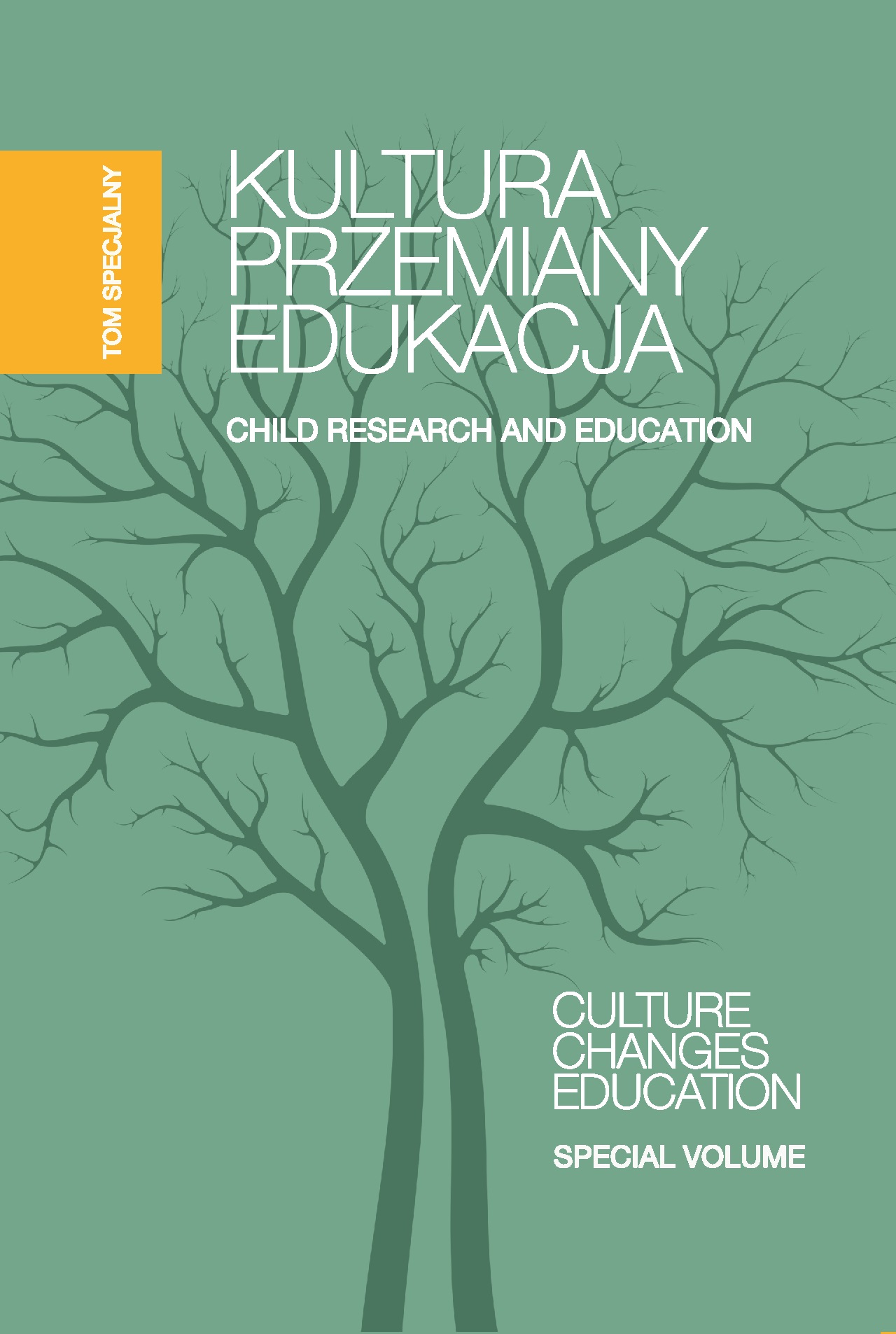The Escol@s Digitais Project. An experience of working with technologies in Primary Education in Portugal
DOI:
https://doi.org/10.15584/kpe.spec.crae.2024.12Keywords:
digital transformation, digital skills, primary education, curricular integration of technology, teacher education modelAbstract
The Escol@s Digitais Project is an action-research project that was born on the initiative of the Municipality of Amadora (Portugal) and has been under development by a research team of the Institute of Education of the University of Lisbon. As part of the Education XXI line of research, it aims to support the ongoing digital transformation in all public schools of Primary Education in the municipality to enhance the quality of processes, performances, and results of learning. Seeking to deepen and consolidate existing knowledge and practices, the Project defines four objectives to be pursued intentionally throughout its term: i) valuing the work carried out within schools in the digital transition, distinguishing and promoting successful practices; ii) reinforcing the sustained integration of teaching and learning dynamics with digital, in the classroom and in other local contexts; iii) recognizing and assessing students' digital skills, bearing in mind the Portuguese Profile of Students Leaving Compulsory Schooling; iv) monitoring project activities and understand their impact on teachers and students. In this article, we present the main starting questions and the conceptual foundations and premises that underpin the intervention plan's design. Although the plan involved other dimensions, particularly related to school management, here we will emphasize the assumption of digital technologies that we assumed and how we worked with the teachers. We conclude with the presentation of the Project's assumptions and work axes.
Downloads
References
Apple Computer, Apple Classrooms of Tomorrow – Today Learning in the 21st Century, Cupertino 2008.
Avdeeva S., Uvarov A., Tarasova K., Digital Transformation of Schools and Student’s Information and Communication Literacy, “Voprosy Obrazovaniya / Educational Studies Moscow” 2022, 1, doi: 10.17323/1814-9545-2022- 1-218-243.
Bǎnuţ M., Albulescu I., The integration of Digital Competences into the Primary Education Curriculum, “Astra Salvensis” 2021, 2.
Bartolomé A., Revisando actitudes ante las tecnologías digitales, “Innovaciones Educativas” 2021, 23.
Bers M., Designing Digital Experiences for Positive Youth Development: From Playpen to Playground, Oxford 2012, doi.org/10.1093/acprof:oso/9780199757022.001.0001.
Costa F., Cruz E., Fradão S., Rodriguez C., Repensar as TIC na Educação. O Professor como Agente Transformador, Lisboa 2012.
Costa F., Curricular development and ICT: From technological deficit to methodological deficit [in:] ed. EDEN, Tallinn 2016.
Costa F., Viseu S., Action and Reflection – nuclear strategies of teacher training for ICT use [in:] ed. Persson M., Karlstad 2006, doi:10.1163/23528230-08002005.
Dwyer D., Ringstaff C., Sandholtz J., Apple Computer, Teacher Beliefs and Practices Part I: Patterns of Change. ACOT Report #8, Cupertino 1992.
Ertmer P., Teacher pedagogical beliefs: The final frontier in our quest for technology integration?, “Educational Technology Research and Development” 2005, 53(4).
Europeen Comission, Digital Education Action Plan (2021–2027). Resetting education and training for the digital age, Brussels 2020.
Governo de Portugal, Aprendizagens Essenciais – 1.o CEB, Lisboa 2018.
Governo de Portugal, Orientações Curriculares para as TIC – 1.o CEB, Lisboa 2018.
Governo de Portugal, Perfil dos Alunos à Saída da Escolaridade Obrigatória, Despacho n. 6478/2017, Lisboa 2017.
Governo de Portugal, Plano de ação para a transição digital de Portugal, Lisboa 2020.
Governo de Portugal, Programa de digitalização para as Escolas, “Resolução do Conselho de Ministros n. 30/2020, Lisboa 2020.
Hargreaves A., Changing teachers, changing times, Toronto 1994.
Hunter J., Technology Integration and High Possibility Classrooms. Building from TPACK, New York 2015.
INCoDe2030, Quadro Dinâmico de Referência de Competência Digital para Portugal, Lisboa 2019.
Jonassen D., Computers as cognitive tools: Learning with technology, not from technology, “Journal of Computing in Higher Education” 1995, 6.
Kolb L., Learning First, Technology Second: The Educator’s Guide to Designing Authentic Lessons, Portland 2017.
Lewin C., Smith A., Morris S., Craig E., Using Digital Technology to Improve Learning: Evidence Review, London 2019.
Luić L., Švelec-Juričić D., Lasić-Lazić J., Šantalab M., Planning, Managing and Leading the Digital Transformation of Schools [in:] ed. IATED, Valencia 2022, doi: 10.21125/iceri.2020.
Makki T., O’Neal L., Cotten S., Rikard R., When first-order barriers are high: A comparison of second-and third-order barriers to classroom computing integration, “Computers and Education” 2016, 120, doi:10.1016/j.compedu.2018.01.00.
Mialaret G., Psicopedagogia dos meios audiovisuais no ensino do primeiro grau, Petrópolis 1973.
OECD, Education at a Glance 2018, 2018.
OECD, OECD future of education and skills 2030. OECD learning compass 2030, 2019.
Ottenbreit-Leftwich A., Liao J., Sadik O., Ertmer P., Evolution of Teachers’ Technology Integration Knowledge, Beliefs, and Practices: How Can We Support Beginning Teachers Use of Technology?, “Journal of Research on Technology in Education” 2018, 50(4), doi: 10.1080/15391523.2018.1487350.
Papert S., What’s the big idea? Toward a pedagogy of idea power, “IBM Systems Journal” 2000.
Peralta H., Costa F., Teacher’s Competence and Confidence regarding the use of ICT, “Sísifo. Educational Sciences Journal” 2007, 3.
Petko D., Teachers’ pedagogical beliefs and their use of digital media in classrooms: Sharpening the focus of the «will, skill, tool» model and integrating teachers’ constructivist orientations, “Computers and Education” 2016, 58(4), doi: 10.1016/j.compedu.2011.12.013.
Player-Koro C., Rensfeldt A., Selwyn N., Selling tech to teachers: Education trade shows as policy events, “Journal of Education Policy” 2018, 33(5).
Puentedura R., SAMR: Getting To Transformation, 2011.
Redecker C., Punie Y. (ed.), European Framework for the Digital Competence of Educators: DigCompEdu, Luxembourg 2017, doi: 10.2760/178382 (print),10.2760/159770 (online).
Renz A. Vladova G., Hellmuth D., Beyond Technology: Dimensions of Digital Transformations in Schools [in:] ed. ISPIM Connects, Valencia 2021.
Resnick M. (ed.), Lifelong kindergarten: cultivating creativity through projects, passion, peers, and play, Massachusetts 2017.
Rogers E., Diffusion of innovations, New York 1995.
Tondeur J., van Braak J., Ertmer P., Ottenbreit-Leftwich A., Understanding the relationship between teachers’ pedagogical beliefs and technology use in education: a systematic review of qualitative evidence, “Educational Technology Research and Development” 2016, 65(3).
Volkov Y., Chikarova G., Current Issues young teachers’ professional identity in a big city, “WorldJournal on Educational Technology: Current Issues” 2021, 13(2), doi: 10.18844/wjet.v13i2.5713.
Downloads
Published
How to Cite
Issue
Section
License
Copyright (c) 2024 KULTURA – PRZEMIANY – EDUKACJA

This work is licensed under a Creative Commons Attribution-NoDerivatives 4.0 International License.


